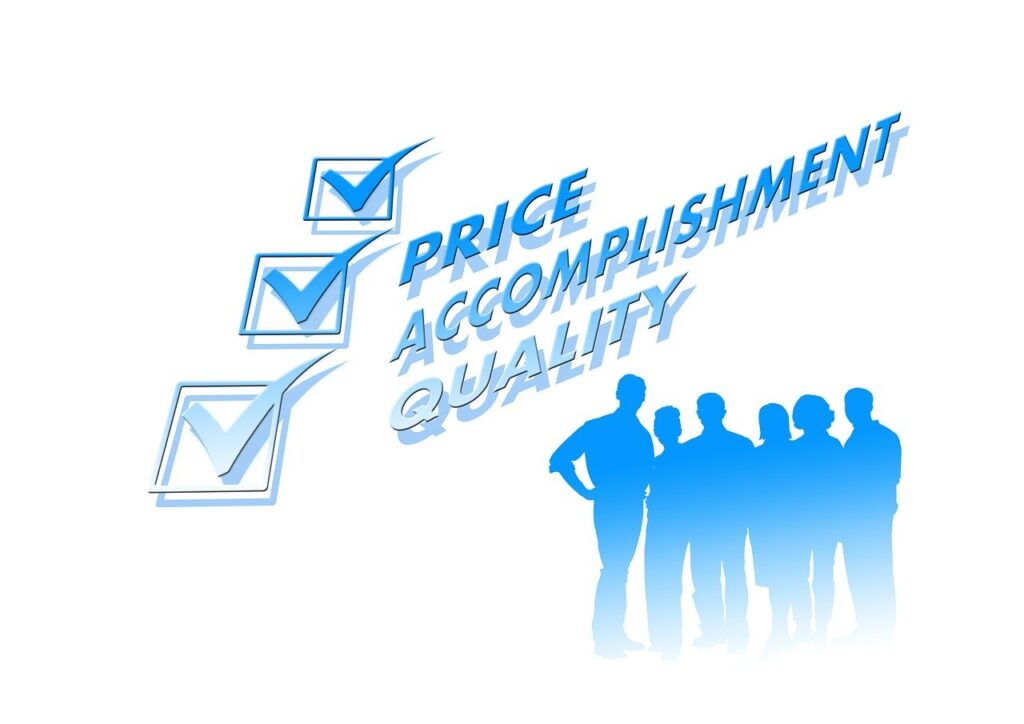Entrepreneurs and organizations heavily rely on some principles to run their businesses effectively. Undecisive layouts and frameworks can lead to multiple crises, for instance, mismanagement, low employee productivity, useless output, and many more.
Organizations that are based on unnatural business rules and do everything without any formal approach always suffer in the long run. We have organized a set of rules to further enrich your decision-making phases and give you a heads-up to run your operation smoothly.
Which of the Following is True of Business Rules?
Fundamentally, these are the principles that carry the nature of how an organization runs its daily operations. This set normally dictates business behavior and helps businesses move forward toward their ultimate growth and development.
Whether it is about production, manufacturing, or supply chain, business rules combined with standard operating procedures (SOPs) give your workforce a dynamic and clear structure. These rules shed light on various jargon, procedures, definitions, and the organization’s overall sphere of influence. Proper written documentation of agreed business rules can shape your entire business process.
How to create your business rules?
Business rules are pivotal in setting your direction and streamlining the entire team to work towards the outcome. It contains all the aspects, including both human and technological advancements. If you have established the correct rules, especially the human strategies, your all decisions will harvest the fruits of productivity. Following are some of the fundamentals to keep in mind while writing the business rules:
Determine your business procedures
You have to be very strong to determine the aspects where you need human intervention. These aspects will ensure that without human involvement, further guidance and decision-making will not be implemented.
Analyze your all data encryption
Data is the new oil in this digital era, hence ensure your teams and business units take data and information into consideration every time. Work on strategies to use data as much as you can, even if it is a very minimal decision. All your projects must be archived when it is completely executed.
Record your instructions
Crystal clear and concise language must be used to announce the controls and procedures. Don’t use unpredictable terms and jargon that can lead to ambiguity or that can be taken into multiple meanings.
Your communication must be meaningful, credible, intelligent, and self-explanatory. Remove all the negative and redundant words, and make a connection between the preceding and succeeding rules.
Constitute the rules
A management system must have all your agreed rules so anyone from your team can view them anytime. You could also conduct unit and performance testing to guarantee the quality of your processes. The various tests occur at different stages, including the rule level, decision level, and the expected result.
Business rules examples
Attendance management
HR or the admin team usually counts the remaining leaves and sets the way forward accordingly. Employees see the portal and view the data of their remaining leaves. Business rules and procedures will create provisions that synergize the gap between employees and the management team, minimizing error and saving time.
Appraisals
Business rules pave the performance cycle and appraisal. Everyone in the organization will be crystal clear about how the performance will be determined, how one’s performance will be ranked, and what skills they need to shine.
Most importantly, business rules will promptly carry forward and reflect their actual performance, accomplished targets, and their work time in the organization.
Invoice dispensation
Vendor management is a key component in establishing a credible business approach. You can use SAP or any other model to generate specific quote submissions, invoice approvals, invoice processing and finally disbursing the invoice amount.
Such business rules will determine the decision-makers and the responsible persons for respective types of invoices.
Customer dealings
Comprehensive business rules monitor client behavior to determine which goods to sell. Organizations can also determine discounts and compute commissions based on the specified rules.
Bonuses
Bonuses provide an excellent avenue for rewarding high-performing clients. Businesses can specify their sales objectives and monitor the year’s performance to determine which team members qualify to receive the bonuses.
What are the business Rules in Terms of Advantages for The Company?
- Provide greater process control: Implement established rules, it will be easier to notice errors and mixed activities and fix them swiftly. You can have more control over the most relevant processes.
- Strengthen strategies: It will bring more efficiency in the implementation of strategic planning to consider company policies, and goals set and strengthen processes to achieve them.
- Reduce costs: It monitors rules that take into account your income and goals to avoid losses.
- Assist in decision-making: It’s clear that the very definition of a business rule is that it helps to ensure that the decisions a company takes are within the standards it desires.
Conclusion
Organizations and businesses require an agile platform to move rapidly and change direction with precision. Efficient process automation software enables your organization to model seamless business rules and enhance your business agility. Consider using business rule templates from reputable partners to streamline your processes.

